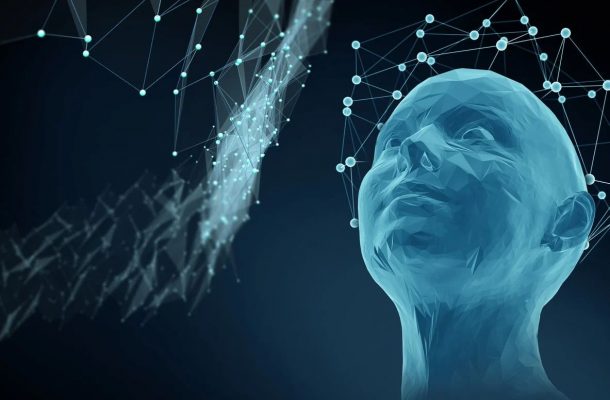A new approach to consciousness

Science still can’t explain what in us groans at the alarm clock, why we’re gladdened by a carolling magpie, or like the smell of coffee.
This riddle – what is consciousness? – is sometimes called the “hard question”, because despite advances in brain mapping and neuroscience, the nature of consciousness remains a mystery.
“We don’t know how firings of neurons in the brain give rise to our subjective experience of the world,” says philosopher Jakob Hohwy.
“We can imagine a computer that’s wired up just like a brain. We can also easily imagine that computer is not conscious. It’s just the firing of neurons. It’s very hard to make the bridge from firings of neurons, electrical discharges between the cells, and then, what makes you, you.”
Professor Hohwy studies the science and philosophy of consciousness in his Cognition and Philosophy Lab. He’ll also head Monash University’s new Centre for Consciousness and Contemplative Studies, which has received $12 million in philanthropic funding from Martin and Loreto Hoskings’ Three Springs Foundation.
The centre, due to open in early 2022, will be led by philosophers and humanities researchers and house neuroscientists, psychologists, and medical doctors.
It will be a leading research centre for consciousness and contemplative studies, teaching contemplative practices to students and the broader community, and will also conduct interfaith dialogue.

“We don’t know how firings of neurons in the brain give rise to our subjective experience of the world,” says Professor Jakob Hohwy.
A philosophical and physical problem
Contemplative practices are being studied alongside consciousness, because the ways in which they change our physical and emotional states is “both a philosophical problem, and a mind/body problem”, Professor Hohwy says.
Philosophers have long tried to explain what in us gives rise to subjective experience, he says.
“And it’s also now increasingly a scientific question … Neuroscientists and psychologists are trying to explore the brain-basis of consciousness.”
Meditation and contemplative practices are also important in most religious traditions. Meditation is integral to Buddhist practice, for instance, and has also informed Buddhist philosophical ideas about consciousness, says philosopher and Buddhist scholar Monima Chadha.
“In Buddhism, these two things are intimately connected. They’re not studying consciousness and doing meditation, they’re thinking of the study of consciousness as providing the theoretical background for these meditative practices – why they work, and all of that,” she says.
“Meditation is not an investigative method leading to new discoveries about the mind. The Buddhist approach is premised on the idea that meditative practice serves to turn principles like impermanence, no-self, that are proven through scriptural study and rational inquiry into objects of experience.
“In this sense, meditative understanding is continuous with, and dependent upon, preceding philosophical analysis; it has no independent epistemic value of its own,” she says.
“It’s very unusual for anyone in consciousness science or research to think that there could be any change in any consciousness state without some change in some brain state.”
Can science alone investigate this paradox?
“It’s a good question, because I think there’s a quite strong feeling that when we do the neuroscience of meditation and consciousness that we’re trying to reduce away,” experiences “that can’t be materialised or reduced,” Professor Hohwy says.
The challenge for the centre is to find ways of researching these mysteries, in a way that honours the complexity of human experience and the scientific method.
Spiritual traditions have long acknowledged the difficulty.
According to the Buddhists, meditation should lead to the attainment of “four immeasurables” – loving kindness, empathy, compassion, and equanimity – Dr Chadha says.
She hopes the centre can “devise ways of thinking about how they might be measured”.
Could meditating for, say, 10 minutes a day, help one become more compassionate, for instance, and can this be assessed in a lab?

Where psychology and science meet
Professor Hohwy envisages engaging psychologists and cognitive scientists to collaborate with this task.
“It’s very unusual for anyone in consciousness science or research to think that there could be any change in any consciousness state without some change in some brain state,” he says.
“There’s a materialist foundation for this, but that’s not the same as saying that you can explain every subjective aspect of consciousness by just listing changes in neurons that fire certain ways. That’s where the interesting philosophical work is done. What are the limits to our capacity of explaining subjective experience?”
He says Dr Chadha’s background in Buddhism has been useful in placing mindfulness practices in a historic and philosophical context, rather than simply seeing it as “a product, an app on the phone”.
“The ethical side, the interpersonal side of this, is really important and exciting, as far as I’m concerned,” Dr Chadha says.
The centre will also look at “other faith traditions and secular and humanist traditions, to see what the contemplative practices look like there”, he says.
This article was published by Lens.
Open Forum is a policy discussion website produced by Global Access Partners – Australia’s Institute for Active Policy. We welcome contributions and invite you to submit a blog to the editor and follow us on Twitter, Facebook, Linkedin and Mastadon.












Alan Stevenson
May 1, 2021 at 10:26 am
This is truly one of the most intriguing subjects of our age. The human mind is extraordinarily complex and yet so incredibly easy to trick and misuse – take the stage magician who convinces people that they have seen something which is obviously impossible, the spin doctor who is able to communicate a lie without lying, the people who witness an event and then have completely different interpretations about what happened.
The way we interpret what we sense, store the result, analyse the event, then communicate it varies with each individual and yet we manage to stumble through life relatively safely.
Most of us believe that we are truthful, honest and upstanding citizens yet are unaware of what others think of us. A recent meeting showed me that I had been completely misunderstood by nearly everyone else because of the use of a single phrase in my presentation.
Language is a complex concept; English is a conglomerate of many languages and yet is deficient in words defining concepts like love or fear for which other languages have many words – love for man and wife; parents to children; person to country; person to Nature; person to humanity, person to sibling. Similarly with fear and many other feelings.
Most of us believe that we think and act logically as we go through life. Anyone who has attempted to program a truly logical device like a computer will be aware that this is not the case – we assume a lot with the person we are communicating with which we cannot do when writing a computer program.
This article needs a lot more input from readers with a much deeper knowledge than mine.